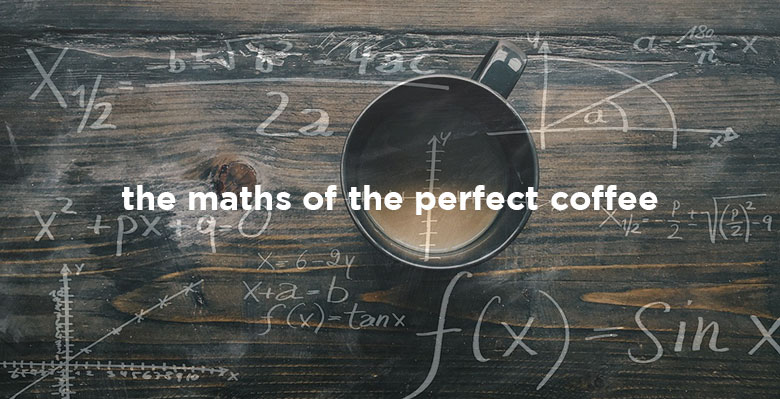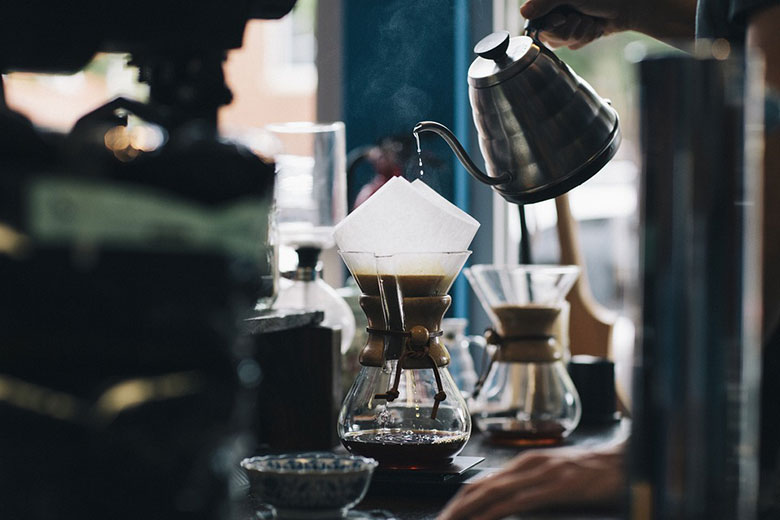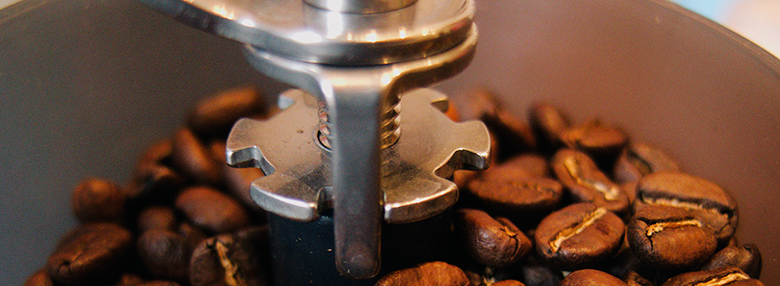The maths of the perfect coffee

Mathematicians in the United States are claiming to have found the formula for perfect drip filter coffee, via some complex calculations and of course drinking plenty of coffee.
Brewing the so-called ‘perfect coffee’ is a little subjective surely? We all have different tastes, but we’ll humour these boffins for a little bit as they’ve put a serious amount of time and effort into their research.
These findings could help us all make better drip coffee, by applying a more scientific and precise approach.
With over a billion cups of coffee being drunk per day worldwide, it’s going to be a tough ask to convince us and the rest of the world that our brewing techniques are not right.
The research paper, which was published in the SIAM Journal on Applied Mathematics, focused on the maths of coffee extraction – there has been little scientific work done on drip filter machines and the process in general.
What is a heavily subjective prospect, the ‘perfect coffee’ has still been researched.
“Our overall idea is to have a complete mathematical model of coffee brewing that you could use to design coffee machines, rather like we use a theory of fluid and solid mechanics to design racing cars.” Dr Lee told BBC News.
Those of us within the coffee industry are aware, the grind is one of the key aspects of the coffee brewing process.

“We looked at the effect of coffee grain size on the way that coffee comes out of a filter coffee machine,” added Dr Lee.
“The really surprising thing to us is that there are really two processes by which coffee is extracted from grains. There’s a very quick process by which coffee’s extracted from the surface of the grains. And then there’s a slower tail-off where coffee comes out of the interior of the grains.”
In simple terms, if you grind your coffee too fine you end up with an over-extracted cup, that tastes bitter.
Don’t grind quite enough and you end up with a washed-out watery tasting brew.
If this research has proven one thing, it’s the importance of a good quality coffee grinder.
Dr Lee told BBC News that he (personally) sets his grinder to the largest setting, creating larger grains that in-turn results in a brew that is less bitter.
His reasoning for grinding?

“The grains are a bit larger than you get in the standard grind, which makes the coffee less bitter. Partly because it’s adjusting that trade-off between the stuff coming out of the surface and stuff coming out of the interior. When things are larger, you’re decreasing the overall surface area of the system,” Dr Lee explained.
“Also, the water flows more quickly through a coffee bed of large grains, because the water’s spending less time in contact with the coffee, helping reduce the amount of extraction too.
“If it’s bitter, it’s because you’re increasing the amount of surface area in the grains. Also, when the grains are very small, it’s hard for the water to slide between them, so the water is spending a lot more time moving through the grains – giving it more time for the coffee to go out of solution.”
Unfortunately we have some bad news for Dr Lee. The perfect cup of coffee doesn’t exist. It’s too subjective.
If this research is used to help improve filter machines, then it will have been time and money well invested. Especially when you consider that some 18 million coffee machines are sold in Europe each year alone.
But until that happens, we’ll stick to making coffee how we like it. Thanks, but no thanks.
